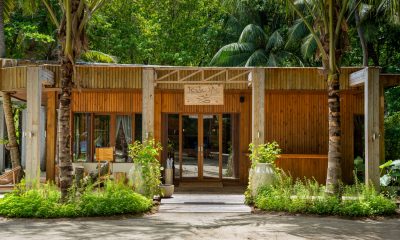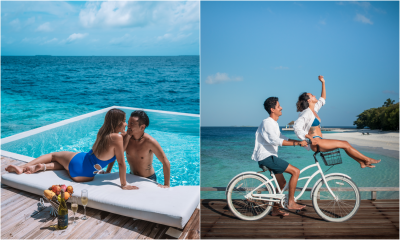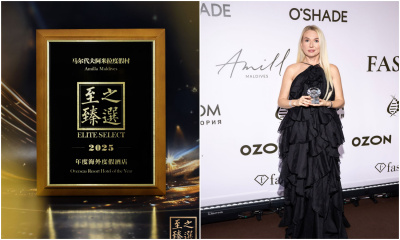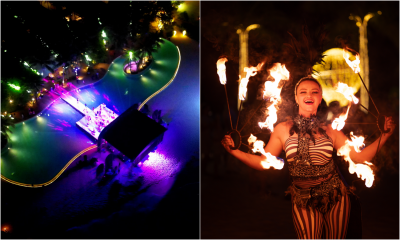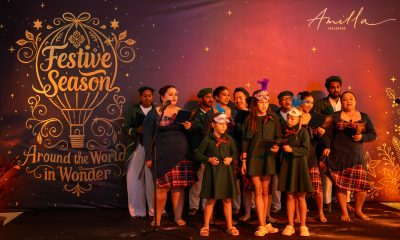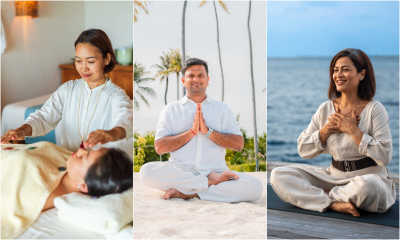Blog
A day in the life of Amilla Maldives’ Spa Manager

When the Maldives was temporarily locked down earlier this year, Amilla’s Spa and Wellness Manager Laura Pagano went from running Javvu Spa to tending to orchids and growing vegetables in their gardens.
It was no easy feat for a self-confessed (former) ‘plant killer’, but Laura’s lockdown experience led her on a journey of learning, where she discovered skills she never realised she had!
Armed with brand new knowledge, green-fingered Laura has helped create a host of exciting new experiences on the island. These unique developments are making Amilla even more fun and memorable for guests, now the island is open for business again.
We sat down with Laura to find out more.

Tell us about your first lockdown project?
It was the Jungle Gymnasium, which is now about to open for guests. It had been a dream of mine for a few years, but it makes sense now more than ever, because of the connection to nature. Being surrounded by nature is something everyone has been craving this year while they were locked in their houses. And of course, the outdoors in one of the safest spaces to be right now. I don’t think many resorts are offering anything like our outdoor exercise area. It’s 90 per cent done but opening soon and I think our guests will love it.
At the same time, we also created private gym pods. The idea came from the need to create physical separation in the gym. We already had a very luxurious spa with 10 really big and well-equipped treatment pods, each with private showers. When we moved some of the equipment around the gym to create more physical space between them, we had all this surplus equipment. So, we created the gym pods from the spa pods to give guests complete privacy, and they are thoroughly sanitised between guests.
Tell us about your journey from a totally new role looking after plants to using plants to create experiences at your spa?
When Jason came to me with the idea to work with plants, I was kind of worried because I used to kill my own plants within a few weeks! So, I had to find a way to make it work. After we closed the resort in March, I was asked to take care of the orchid gardens first, and then to grow organic vegetables. It was the first time I’ve ever worked so intensively around plants!
But I really discovered a passion towards nature, flowers and herbs. It was fascinating to see how nature works; something we often don’t stop to acknowledge enough. And I managed to keep the orchids alive! It was very exciting to see the buds coming. Orchids are so sensitive; they need just the right amount of sun and water and fertiliser and they don’t flower very easily.
In the Mystic Garden I worked with different types of plants to the orchid garden. There’s a clear reward to growing this type of plants – vegetables and herbs. Without this experience, I don’t think I’d have been able to fully embrace ‘Dhivei Beys’ and the Alchemy Bar.
And how did you discover Maldivian traditional medicine, known as ‘Dhivehi Beys’?
While I was working in the garden, I had the chance to meet a healer who is very popular in the country. She came over and did a PowerPoint presentation to explain what ‘Dhivehi Beys’ is. She speaks only Dhivehi, so I had a translator. We walked around our island and she had something to say about every plant she saw. The look she had in her eyes when she stopped at every plant was like the look some ladies have in their eyes when they look at shoes in the mall!
I panicked a bit at the start. I went over to her house and met some of her patients, and she showed me ingredients and how to prepare them. She never used massage in her treatments, so I taught her how to do massage, it was a very interesting exchange of skills. It was very challenging to condense ‘Dhivehi Beys’ into just a couple of treatments that would demonstrate the power of this Maldivian tradition.
So how did you implement the two ‘Dhivehi Beys’-inspired treatments for Javvu Spa?
It was thanks to consultations with this lady and a lot of research and studying. I also researched the herbs online to check there would be no contraindications with any of them if I used them in massages.
Since I launched the treatments, they’ve been very well received by guests. I’m very proud of what we managed to create. Every day, I still go around the island and find more new plants, so I’m now designing another new spa journey which is going to be very exciting.
Tell us about how you created the Alchemy Bar?
I’ve been able to use what I learned about the plants of our island from ‘Dhivehi Beys’ in creating the Alchemy Bar at Javvu Spa. It’s an interactive laboratory where we teach our guests to make their beauty potions and bath products, so it brings a special touch to their experience.
During lockdown, the first thing we made was a bath sachet from herbs like lemongrass and neem growing on the island, then we started making our own sea-salt. Then from the dried herbs we realised we could make powders. From there realised can make face masks, teas and more – the possibilities are endless.
There were only seven of us ladies working on the island, so we used to have our own girls’ nights with our own homemade face masks, moisturisers, hair masks etc. We even made our own deodorant because we were running out of it in the shop! It’s the best deodorant I’ve ever used, I swear. I’ve been using it since my garden work and it really works, nobody was running away from me!
What is your biggest takeaway from your lockdown experience?
Even though the island was temporarily cut off, we actually progressed so much. If the lockdown hadn’t happened, we wouldn’t have created a lot of the unique products for guests that we have now. I think we were very lucky on our island during lockdown because we were free to cycle around Amilla and swim in the sea, so we avoided a lot of the harshness that people who were locked in their houses experienced. Considering it was a very difficult experience for the whole world, I’m very grateful we managed to create so many positive things out of our lockdown experience!
Cover photo: Phaisal Photos. For more information about the resort and bookings, please email sales@amilla.mv or visit www.amilla.com
Blog
How to diversify Maldives’ tourism-heavy economy
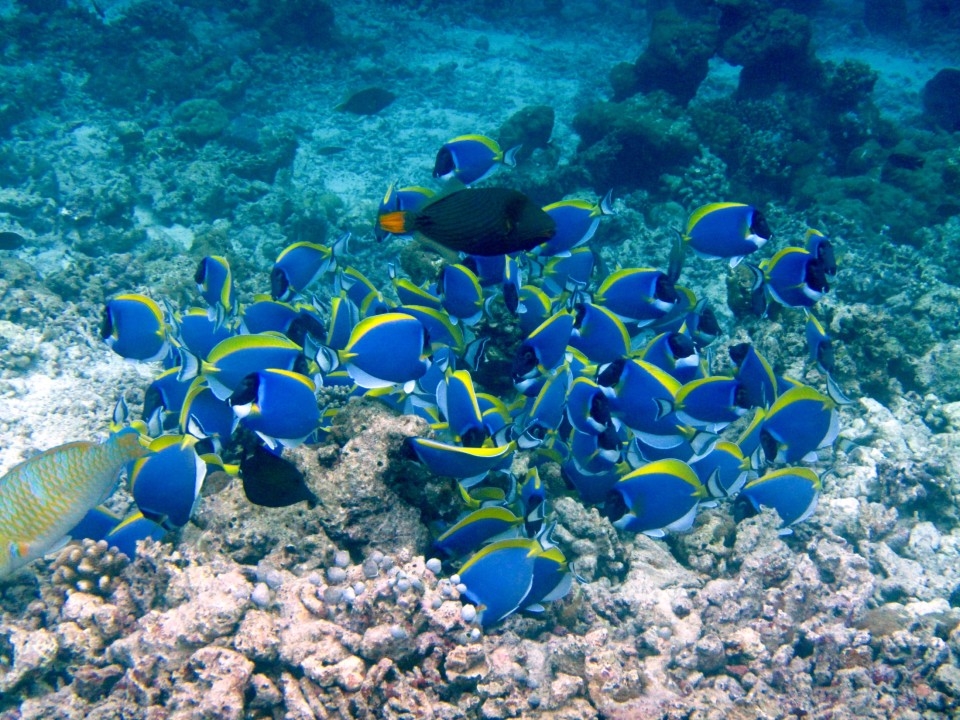
By Sonu Shivdasani
At Soneva, we adhere to the principle that local is best. Whether it’s food produced by our organic vegetable gardens or the fish we source from neighbourhood fishermen, local produce is always fresher, better tasting, and more sustainable.
Producing things within the country, rather than importing everything from abroad, also makes economic sense. And the greater variety of products and services you produce in-house, the easier it is to diversify the economy, making it more resilient.
In an Op-ed that I wrote last year, I mentioned that, “The Maldives is one of the world’s best places to operate a resort. And yet, the cost of borrowing the money to build one is eye-wateringly high. How do we explain this paradox?”
During a recent conversation with a Male-based banker, I was told why lending rates in the Maldives are so high: there is a perception of risk among the financial community because the Maldivian economy is so dependent on tourism.
As Maldivian President Ibrahim Solih, said during his National Day speech on November 11, 2020: “Covid-19 has made us realise our economy cannot solely depend on tourism. This is something we have always debated, yet failed to adequately address.”
It’s easy to understand why the Maldives wants to put some of its eggs in baskets other than tourism. Covid-19 has swung a wrecking ball at Maldivian tourism, which in turn has devastated the government’s finances, foreign currency reserves, and the value of the Ruffiya, which are all dependent on tourist dollars.
Though tourism is recovering since the border reopened in July, and many resorts (including Soneva Fushi and Soneva Jani) are currently as busy as they were last year, a few good months at the end of the year won’t make up for the carnage of March-July. And so, how to diversify the Maldives — a country that’s 99 per cent ocean, and with a small population?
Extracting better value from Maldives’ fish catch
An obvious place to start is in areas the Maldives already does well: fishing. Although the Maldivian fishing industry is already large, much of the value of the fish is in the processing, not the catching.
Here, the Maldives could improve. Instead of selling frozen, whole tuna to Thailand, more money would be made if all Maldivian fish were canned in the Maldives. The fisheries ministry recently said as much; announcing plans to expand cold fish storage.
The branding of Maldivian tuna could also be enhanced. The Maldives operates the world’s most sustainable fishing fleet. Every fish is caught by hand, with a pole and line, one-by-one. Nets and long-lines are banned, meaning there is almost no by-catch of sharks, turtles, dolphins and other charismatic or endangered sea creatures.
More could be made of this inherent strength, especially as consumers in Western export markets demand more sustainable food. Maldivian tourism is globally renowned for being the world’s most luxurious. Maldivian fish should be equally known as the world’s most environmentally friendly.
Growing our own food
Although the Maldives is 99 per cent sea, let us not forget about what can be done on that 1 percent of land. It’s heartening to see a big government push towards growing more food. There is huge demand, especially from resorts, for locally-grown, fresh produce.
Both Soneva Fushi and Soneva Jani have highly productive fruit, vegetable and herb gardens that supply the bulk of the ingredients for our restaurants. What we don’t produce ourselves, we strive to buy locally to maintain freshness and reduce carbon emissions. Over the summer Soneva also released a series of video tutorials based on our experiences, showing ways to farm in the Maldives, either on a commercial scale or in a window box.
Looking beyond farming and fishing, another opportunity the Maldives could explore further is its relationship with India.
The $1.4 billion assistance granted by India in 2018, and the more recent economic aid package, have both been of great help. But, rather than aid, the Maldives should engage with India to see how it can grow its economy both through tourism and non-tourism means to develop closer ties with this populous and economically significant neighbour.
Potential offshore financial hub
For example, the Maldives could enter into a double tax treaty with India. The Maldives could also negotiate with India, to allow Indian citizens to make personal investments in the Maldives and be able to remit more than $250,000 — the current Reserve Bank of India limit on any foreign currency remittance by an Indian in a particular year. In addition to this, perhaps more Indians could be allowed to pay for personal investments in the Maldives with Rupees. These Rupees could then be used by the Maldives to buy Indian goods.
With a double tax treaty with India in place, the Maldives could explore the opportunity to become a financial centre. Could the Maldives become India’s offshore financial centre, playing a similar role that Hong Kong does to China?
There is a closer Indian Ocean example; in 1989, Mauritius’ government decided that its economy was too dependent on tourism and sugarcane, so it chose to make the country an offshore financial centre.
Mauritius initiated double tax treaties with 18 African countries and India. Like the Maldives, Mauritius’s tax rate was considerably lower than the 18 African neighbours and India. As a result, foreign investors who wanted to invest in India or these 18 African countries set up companies in Mauritius, helping them to legally reduce their tax bills. There are now 20,000 offshore Mauritius companies.
On average, the basic statutory fees that the Mauritius government charges, such as directors fees, and stamp duties for operating companies, come to $5,000 per year. For all the offshore companies registered in the country, these fees tally up to $100 million per year — a huge source of revenue for the government.
Moreover, according to a recent report, Mauritius-incorporated offshore companies have $630 billion of assets. This is 50 times Mauritius’ GDP. If we assume that these companies achieve a 10 per cent return on capital, that means they have net profits of around $63 billion. It is likely that the Mauritius government received more than one per cent of these profits as taxes. Even at one per cent, this is the equivalent of $630 million of revenue to the government.
It has taken Mauritius 30 years to get to where it is. If the Maldives starts today, potentially in 30 years’ time, the government could generate more revenue from offshore finance than from tourism. There are many considerations when setting up an offshore centre. We have recently seen a global backlash against tax havens, so this will require a lot of thought and consideration. But, it is an opportunity.
Second-home schemes and outsourcing
Introducing second home schemes for foreigners is another way to diversify the economy. The government recently changed the law to allow foreigners to become resident in the Maldives if they invest $250,000 dollars, and deposit another quarter of a million in a local bank’s fixed deposit account for at least five years. Similar programmes, in countries such as Malaysia, are very popular. They make it easier for the government to sell debt and help ease dollar shortages.
Lastly, the Maldives could also look to offshore business process outsourcing, which has made cities such as Bangalore wealthy. These days, a British or American customer ringing into a bank call centre is as likely to speak with someone sitting in Bangalore or Hyderabad as Birmingham or Houston. While the Maldives does not have the huge pool of labour that India does, young Maldivians speak English well, so offshore processing could be done, albeit at a smaller scale.
The Maldives has paid a heavy price this year for its over-dependence on tourism. Nobody predicted Covid-19, or the impact it has had on the economy. But, as any good investor will tell you, the best way to mitigate risk is through diversification.
Editor’s Note: This op-ed was originally published on Linkedin by Sonu Shivdasani. Sonu is the founder and CEO of Soneva, which owns luxury resorts Soneva Fushi and Soneva Jani in the Maldives, and Soneva Kiri in Thailand.
Blog
A day in the life of Amilla Maldives’ HR Special Projects Manager
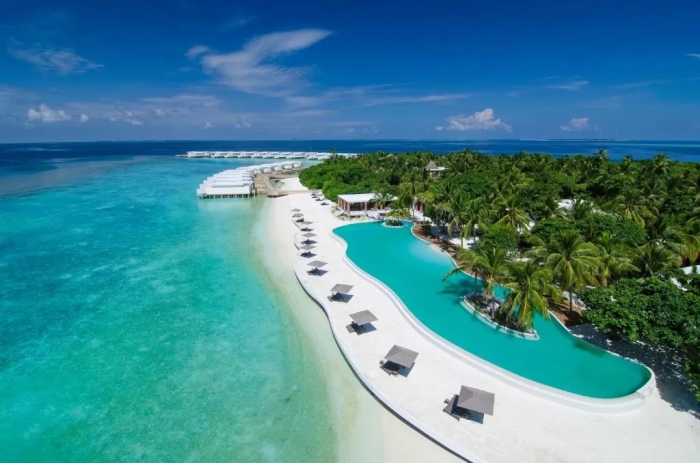
Hussain is a well-known face at Amilla Maldives as the resort’s energetic Assistant Manager of Recreation. With lower demand due to the pandemic this year, Hussain pivoted to a three-month secondment in HR Special Projects.
These unique projects are aimed at maximising the quality of life for everyone working at Amilla. They range from renovating the Islanders’ accommodation block to transforming the staff bar into a chilled-out café-style community space.
This dynamic and multi-talented Islander has also helped plan and run staff events — creating some dazzling decorations in the process. He has even channelled his inner artist to create paintings to brighten up staff areas.
Hussain originally hails from Kurendhoo, a small island in Lhaviyani Atoll. We caught up with him to find out more about how he’s ringing in the changes behind the scenes at Amilla.

How does a typical day begin for you?
With my current role, I don’t so much follow time as follow projects and people. So, I normally wake up around 6am, read the news from the Maldives and around the world for half an hour, do 15 minutes of stretching and warming up for the day, take a shower and then I’m ready to start my day.
Often, when I start something, I’ll have to finish it, otherwise I just cannot sleep! So, sometimes, if I had a late night, I’ll wake up at around 7am but never later than 7.30am, so I can get things done.
Every day can be different depending on my tasks, but one of my favourite things to do is making decorations for staff events. Everybody says I’m really good at it. I also like doing carpentry and painting abstract stuff. The management has given me a lot of opportunities to try out new ideas and the freedom to learn new things, which I really appreciate.
How closely do you work with the other Islanders on your projects?
The best resource of any company is their staff. If we don’t care for them, they won’t enjoy their jobs or their life with us. So, our first priority is always our staff and our guests.
Getting feedback every day is the biggest thing in HR Special Projects. Before we make any new service or changes, we get feedback from the staff. That’s because we need to give them what they want where this is possible. Normally, lunchtime is the best time to go speak to them. The best way I’ve found to do it is to have a friendly chat. I just go to wherever they are, have a coffee with them, then ask them in a friendly way. Otherwise, if I just ask them formally, they might not open up.
What has been your favourite special project to work on so far?
I thought something I really had to do was provide what the Islanders really need, so I started working with the Bliss tuck shop, because it’s difficult to get what they need from other islands, especially with the Covid-19 restrictions. So, I’ve changed the concept and created more options as well as redesigned the shop. Red Bull is the most popular item, of course! It’s their basic need, they enjoy it a lot. But although we have a canteen, we didn’t have anything like a café area for them to enjoy the drinks they bought from the shop.
What was the solution?
We have a nice bar which needs a little attention to evolve the concept into something new because as Maldivians, with our culture, we’re not allowed to drink alcohol. So, if we have a bar where people think it only serves alcohol, it means some of the staff can be there, but some might not feel comfortable. I’m leading on the project to transform the bar into an area where the Maldivian staff and expat staff can enjoy things together as one family. This new concept will be more than a bar, it’ll be more like a café area where staff can also do things like book a cinema night, or celebrate a private birthday party with their friends, and so on.
How did you end up in this special projects secondment?
I went back to my island when the Covid-19 pandemic hit but they called me to ask if I was interested in this role. Before this I was working in recreation. I love being active and working with guests and wanted to be back at Amilla with this new opportunity to help me grow and have new experiences.
Can you tell us about your journey to working in recreation?
When I was a teenager, I loved sports and I wanted to play sports professionally, but unfortunately there weren’t many opportunities in the Maldives at the time, so I decided it wasn’t a good idea. Then I decided that recreation at a resort would be a good job because then you get to do everything. But it was hard to get into, so I actually started working in childcare at another resort.
I love kids and it was fun. I spent four years there and became Kids Club Manager, but I still wanted to get into recreation. So, I took a step down to become a Recreation Supervisor at another resort and then finally became Recreation Manager. It was hard to take a step backwards, but it was worth it .
Then I got a knee injury and couldn’t do sports anymore. I had to slow down and from there I decided to learn more about creative art and tennis too. Then this year I got offered the chance to join the HR team, taking care of special projects and staff communications.
I learned one thing from my past; I didn’t follow my passion when I was a teenager to become a professional sports player because of the restrictions including my injury. But I ended up learning many other things that I can use to create beautiful things or to make magic, as our HR Director says! And now with the knowledge and experience I have, I just want to help other people to be happy and follow their passions.
For more information about the resort and bookings, please email sales@amilla.mv or visit www.amilla.com
Action
Sustainable development of coral reefs at Cinnamon Dhonveli Maldives

Renowned for its iconic stunning over-water suites, Cinnamon Dhonveli Maldives is a beautiful tropical island resort offering exclusive access to the classic Pasta Point surf break, described as the “wave-machine” of the North Malé Atoll due to its consistent four to six foot waves.
Green Globe recently recertified Cinnamon Dhonveli Maldives.
The resort first started their coral restoration project in 2018 to help replenish diminishing coral reefs and have continued to develop this initiative since then.
“Coral reefs represent some of the world’s most spectacular beauty spots. They are also the foundation of marine life, without them many of the sea’s most exquisite species will not survive,” Sanjeeva Perera, General Manager at the resort, explained.
“The awareness and in-depth knowledge we receive from Green Globe during the recertification process continues to guide us on the correct path to take in the bold steps forward toward the sustainable development of coral reefs that will benefit future generations in the Maldives.”
Coral reefs in oceans all around the world are dying. It is estimated that nearly one sixth of these reefs will be dead within the next twenty years.
In keeping with the commitment of Green Globe members to manage and operate businesses to the highest level of sustainability, the Cinnamon Dhonveli team initiated this mariculture project two years ago focusing on the pre-emptive restoration and rejuvenation of reefs affected by coral bleaching.
The project uses ‘reef balls’ as artificial reef structures implanted with Mari corals that are cultivated in special nurseries. The reef balls are then transplanted onto the bare substrate to grow.
With marine conservation at the heart of their sustainability vision, the Cinnamon Dhonveli team is committed to making their artificial coral reef propagation project a great success in the Maldives.
They also aim to set up a Marine Discovery Centre to educate visiting youth and children in coral reef propagation, environmental awareness, and the rearing and rescue of sea turtles.
Located no more than a 25-minute speedboat ride from the main Velana International Airport, Dhonveli’s proximity and diversity combine to make it one of the most popular destinations in the Maldives.
The island is constantly buzzing with action as divers, surfers and beach bums alike find a common ground in the world of excitement this little island has to offer. Magnificent waves and a policy of sustainable surfing combine to make Pasta Point at Cinnamon Dhonveli one of the most sought after surfing locations by award-winning surfers from around the world.
Large families, groups of friends, divers and snorkelling buffs all seem to find a comfortable common ground in the heady atmosphere of the 16-acre island as well. Sink your teeth into our succulent seafood and indulge in the theme nights at each of the three restaurants with the best of international cuisine. Unwind at the spa or sink into the comforts of the 148 plush rooms.
-
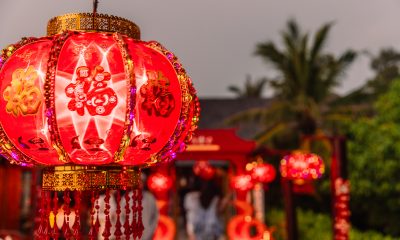
 Featured1 week ago
Featured1 week agoYear of the Horse celebrations across Sun Siyam’s Luxury, Privé and Lifestyle resorts
-
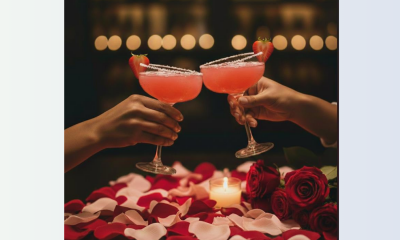
 Love1 week ago
Love1 week agoAzur rooftop at JEN Maldives sets stage for Valentine’s Day dining
-
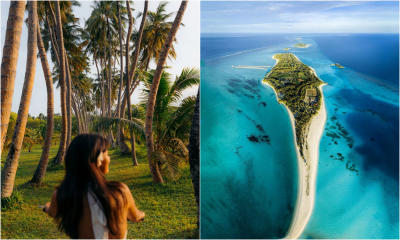
 Awards1 week ago
Awards1 week agoVilla Park secures second straight HolidayCheck Award
-
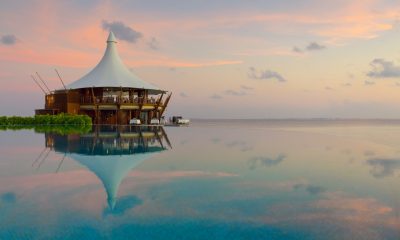
 Cooking1 week ago
Cooking1 week agoBaros Maldives’ The Lighthouse to present Duval-Leroy champagne pairing experience
-
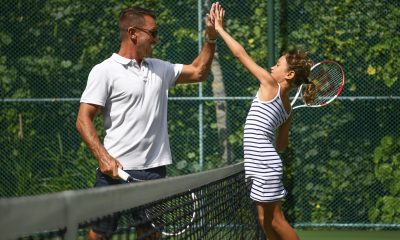
 Action1 week ago
Action1 week agoLUX Tennis joins St. Regis Maldives Vommuli to expand active lifestyle programme
-

 Awards6 days ago
Awards6 days agoEllaidhoo Maldives secures HolidayCheck Gold Award for second consecutive year
-
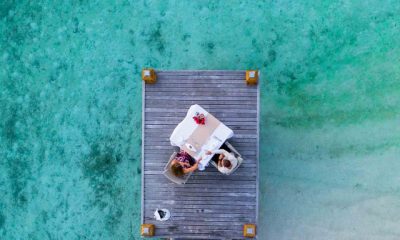
 Love1 week ago
Love1 week agoKandooma Maldives invites couples to gift island escape this Valentine’s Day
-
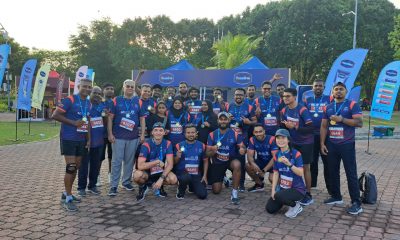
 Action5 days ago
Action5 days agoBestbuy Maldives supports health, wellness as Main Sponsor of MNU Marathon 2026



